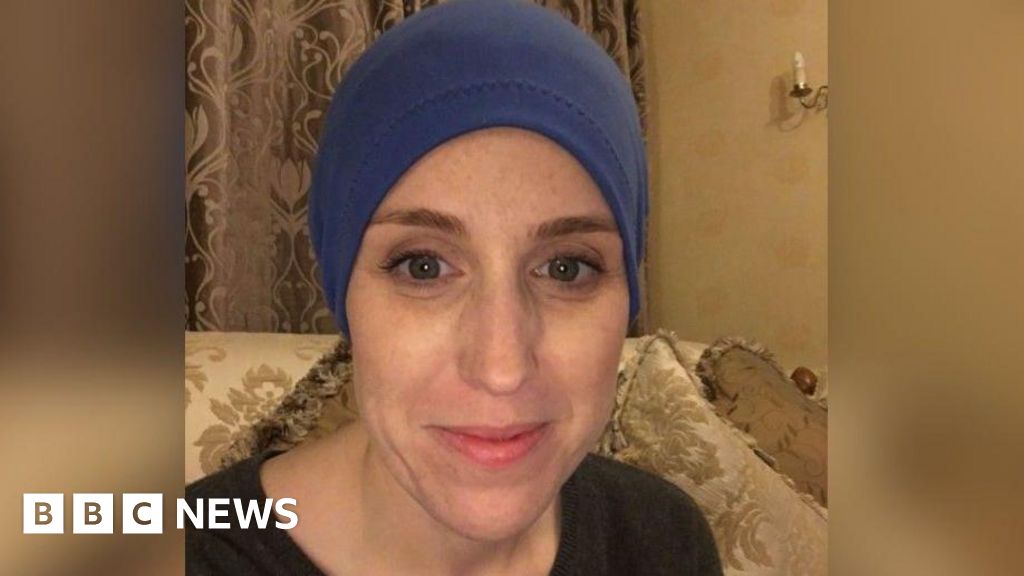Tragic Misreporting of Cervical Cancer Tests Leads to Mother's Death

The family of Louise Gleadell, a devoted mother of three from Cossington in Leicestershire, has received an undisclosed settlement following her tragic death from cervical cancer at the age of 38. This heartbreaking case highlights the severe consequences of medical misreporting, as Louise was mistakenly informed that her cervical screening test results were negative not once, but twice—first in 2008 and again in 2012. The University Hospitals of Leicester NHS Trust, responsible for her care, admitted to the errors in the wake of an internal review conducted in 2017.
Despite being diagnosed with cervical cancer in 2016, Louise was left unaware of the fact that her cervical screening samples, taken four years apart, were deemed inadequate for reliable results. The information was not disclosed to her or her family during her lifetime. This lack of communication ultimately deprived Louise of the opportunity to receive timely treatment for pre-cancerous conditions, potentially preventing the disease from developing into cancer.
Louise's sisters, Clare and Laura Gleadell, have shared their profound grief over the loss of their sister, emphasizing that her death could have been avoided. Laura, 43, poignantly remarked, “Her death was preventable, and that for us is ultimately really hard. If she had been recalled in either 2008 or 2012 for further tests, she would not have developed cancer.” Clare added that the knowledge that the misreported test results directly contributed to Louise's death is a burden that weighs heavily on them, stating, “It is something we probably think about most days, if not every day.”
At the time of her diagnosis, Louise was a mother to three young boys, aged 2, 11, and 13. Her sisters described her as someone for whom family was paramount. Clare and Laura recalled how Louise began experiencing troubling symptoms in late 2015, including persistent pain, unusual bleeding, and unexpected weight loss. Concerned for her health, Louise decided to seek a private ultrasound scan in early 2016, which set off a series of investigations, culminating in a cervical cancer diagnosis in March of that year.
Following her diagnosis, Louise underwent a grueling regimen of treatments that included chemotherapy, radiotherapy, and brachytherapy, a form of internal radiation treatment. Initially, Louise responded well to the treatments, but by late 2016, she faced the devastating news that her cancer had progressed to a terminal stage. Despite her family's efforts to seek alternative treatments, including immunotherapy in Germany, Louise succumbed to the disease, passing away at Loros Hospice in Leicester.
In the aftermath of her death, the Gleadell family took legal action to investigate the circumstances surrounding Louise's care. Through their solicitors, they uncovered that the NHS Trust had been aware of the misreporting of Louise’s test results as early as the summer of 2017—before her death. Specialist clinical negligence lawyer Gemma Lewis, who represented the family, expressed her disbelief that such vital information was kept from the family, stating, “I don’t think the family should have had to find out from me. Someone with a medical background should have explained things.”
Richard Mitchell, the Chief Executive of the University Hospitals of Leicester NHS Trust, publicly apologized for the mistakes made during Louise's care. He acknowledged the devastating consequences of the errors and stated, “Errors like those in Louise’s care are rare, and there have been significant improvements in cervical screening since 2019 with the introduction of HPV testing.” He also mentioned that the trust has reinforced its procedures for communicating cervical screening results to ensure that patients receive timely and transparent information.
In light of their loss and the circumstances surrounding it, Laura and Clare have made it their mission to encourage women to participate in cervical screenings, emphasizing the importance of early detection in preventing cervical cancer. The NHS recommends that cervical screening is crucial as it tests for certain types of human papillomavirus (HPV) that can lead to abnormal changes in cervical cells. The sisters plan to accept the trust’s offer for a meeting to seek further clarity on the errors that impacted their sister’s life and to ensure that such a tragedy does not befall another family.
Ultimately, the hardest aspect for Louise’s sisters is witnessing the impact of their sister's absence on her three young boys. They lament the void left in their lives, encapsulating their heartache by saying, “The hardest part is seeing Louise's three boys without their mother. It's heartbreaking.”


























